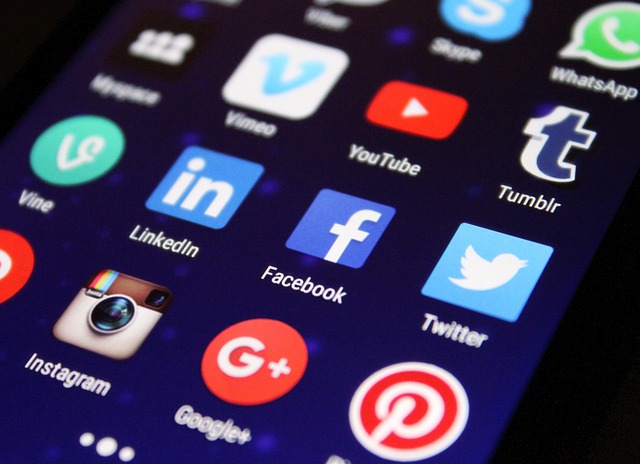Introduction
As the B2B marketing landscape evolves at a rapid pace, businesses must stay ahead of the curve to ensure they remain relevant and competitive. This means not only keeping up with the latest trends and best practices but also being willing to adapt and evolve strategies to meet the changing needs of customers and the market.
In this article, we will explore three B2B marketing strategies that businesses can double down on this year to stay ahead of the game.
B2B Influencers: Leveraging the Power of Influencer Marketing
Influencer marketing has been a buzzword in the B2C space for several years now, with brands of all sizes using social media influencers to promote their products and services to their followers. However, the concept of influencer marketing is equally applicable in the B2B space, and more businesses are recognizing its potential as a powerful marketing strategy.
B2B influencer marketing involves partnering with industry experts and thought leaders to create content and promote products and services to a targeted audience. The idea is to leverage the influencer’s credibility and authority to reach a wider audience and build trust with potential customers.
One company that has successfully implemented a B2B influencer marketing strategy is SAP, the German multinational software company. SAP partnered with a group of technology influencers to create a series of videos on the topic of digital transformation. The videos featured the influencers discussing how businesses can embrace digital transformation to stay competitive in today’s fast-paced business environment.
The campaign was a success, with the videos generating over 1.7 million views and increasing brand awareness for SAP among its target audience.
When implementing a B2B influencer marketing strategy, it’s important to identify the right influencers who have credibility and authority within your industry. You should also ensure that the content created aligns with your brand values and resonates with your target audience.
Brand Building: Familiar Faces Build Trust and Loyalty
In the B2B space, building a strong brand is critical for success. A strong brand can differentiate your business from competitors, build trust with customers, and create long-term loyalty. However, building a strong brand is not a one-time activity; it requires consistent effort and a focus on creating a strong brand identity.
One way to reinforce your brand is to use familiar faces in your marketing campaigns. Familiar faces could be your own employees, customers, or industry experts who are well-known within your industry. Using familiar faces can help to build trust and credibility with your audience and create a more personal connection with your brand.
Cisco Systems, the global technology company, has successfully used familiar faces in its marketing campaigns. In a recent campaign, Cisco used its own employees to showcase the company’s culture and values. The campaign featured a series of videos and social media posts highlighting the personal stories of Cisco employees and how they are making a difference in the world.
The campaign was a success, generating over 14 million social media impressions and increasing brand awareness for Cisco among its target audience.
When using familiar faces in your marketing campaigns, it’s essential to ensure that they align with your brand values and messaging. You should also consider the demographics of your target audience and select faces that will resonate with them.
Enabling Employees to be Brand Storytellers
Employees can be valuable assets when it comes to building your brand. They are often the face of your company and can have a significant impact on how your brand is perceived by customers and prospects. Therefore, empowering your employees to be brand storytellers can be a powerful way to reinforce your brand and create a more personal connection with your audience.
One way to enable employees to be brand storytellers is to create a social media advocacy program. This involves encouraging employees to share company updates and content on their personal social media channels, helping to amplify your brand messaging and reach a wider audience.
One company that has successfully implemented a social media advocacy program is IBM, a multinational technology company. IBM created a program called IBM Voices, which encourages employees to share content and updates on their personal social media channels. The program provides employees with training and resources to help them create engaging content and build their personal brand while promoting IBM’s brand values and messaging.
The program has been a success, with over 30,000 IBM employees participating in the program and generating over 1 million social media interactions per year.
When implementing a social media advocacy program, it’s important to provide employees with the training and resources they need to create engaging content that aligns with your brand values. You should also ensure that employees understand the importance of maintaining a professional image and adhering to your company’s social media policies.
How Will You Adapt Your Strategy This Year?
As the B2B marketing landscape continues to evolve, businesses must be willing to adapt and evolve their strategies to stay ahead of the game. The three strategies we have discussed in this article – B2B influencers, brand building with familiar faces, and empowering employees to be brand storytellers – are just a few examples of the innovative approaches businesses can take to reinforce their marketing efforts this year.
When adapting your strategy, it’s important to keep your target audience in mind and focus on creating a personalized, engaging experience for them. You should also track your results and be willing to make adjustments as needed to ensure that your efforts are having the desired impact.
Conclusion
B2B marketing is constantly evolving, and businesses must be willing to adapt and evolve their strategies to stay ahead of the game. By leveraging the power of B2B influencers, using familiar faces to build trust and loyalty, and empowering employees to be brand storytellers, businesses can reinforce their marketing efforts and create a powerful brand that appeals to their target market.






